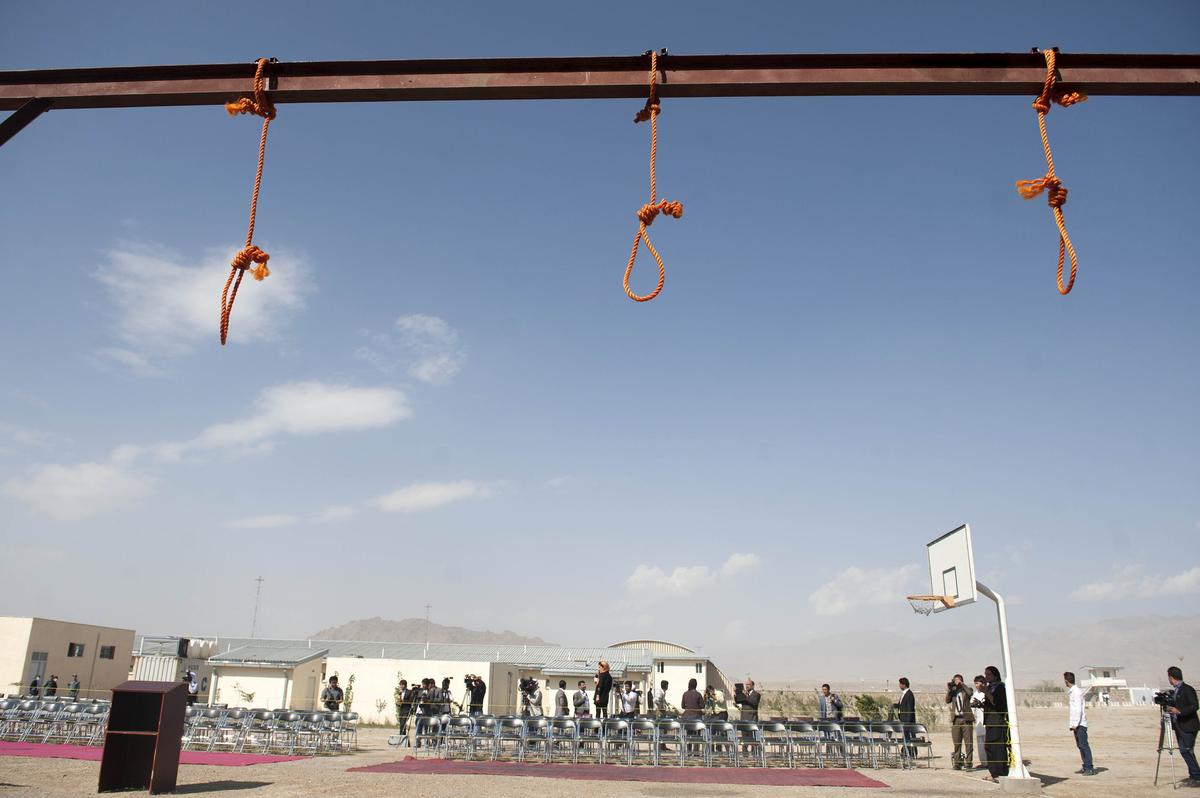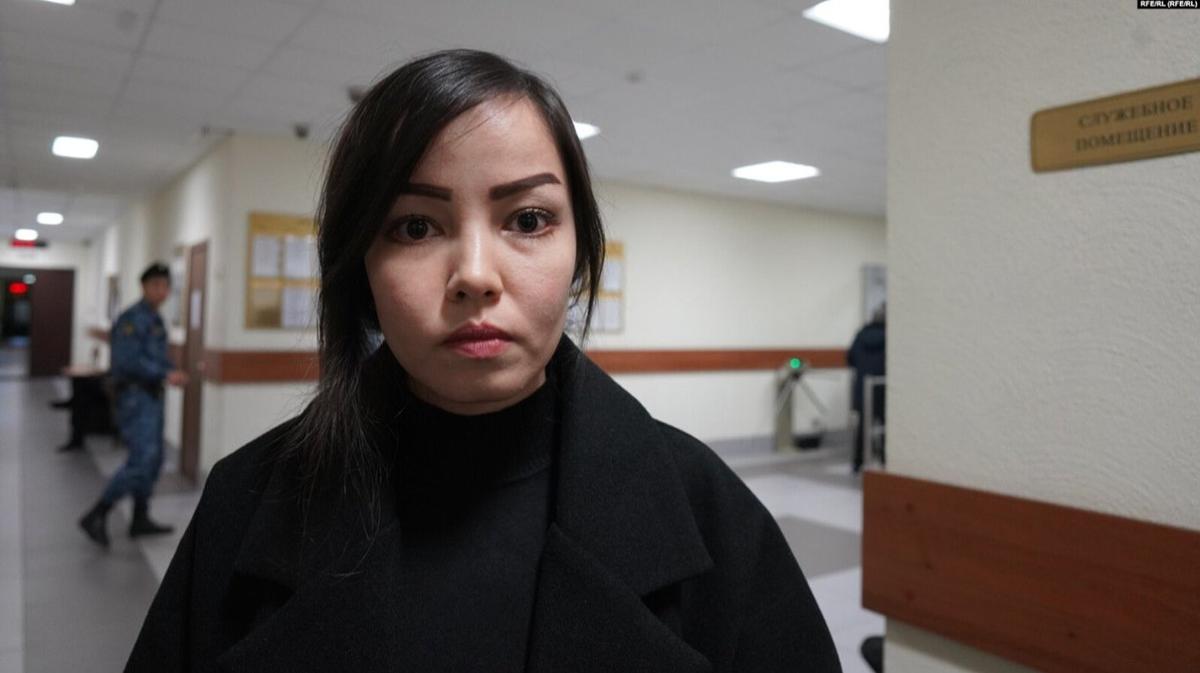After spending months in a Russian prison for illegally entering the country after fleeing Afghanistan for her life following the Taliban’s return to power, Afghan journalist Kobra Hassani told one of her supporters in court that it would be “better to die in Afghanistan once than to die in prison every day”. Last week, after her appeal for asylum in Russia was rejected, she was forced to return to Kabul, where she may face the death penalty.
Hassani’s parents fled Afghanistan for Iran after the Taliban seized power in 1996. Kobra was born a year later. When US and UK troops entered Afghanistan in 2001 and took control of most of the country, Hassani and her parents returned to Kabul, where she graduated from high school and enrolled to study international relations at university.
While living in Afghanistan, Kobra became involved in human rights activism, and in particular, fighting for the rights of Afghan women, which ultimately led her to get a job in the Kabul bureau of US National Public Radio.
However, following the Taliban’s return to power in 2021, Hassani’s family were forced to flee the country once again. Hassani attempted to go to Germany, where her fiancé lives, but was only able to reach Ukraine where she was granted asylum and enrolled at the economics department of Kyiv State University while she applied for her German visa.
Attempting to leave the country by any means possible, she fell victim to fraudsters, who charged her a considerable sum to get her to Poland, but instead took her to Russian-occupied Luhansk in eastern Ukraine.
Hassani was still in Kyiv when Russia launched its full-scale invasion of Ukraine on 24 February 2022. Attempting to leave the country by any means possible, she fell victim to fraudsters, who charged her a considerable sum to get her to Poland, but instead took her to Russian-occupied Luhansk in eastern Ukraine.
After some time there, Hassani travelled to Moscow, where she had some contacts she hoped would be able to help her. From Moscow, she went to St. Petersburg, from where she hoped to travel on to the EU. However, in May 2022, she was detained along with 14 others by Russia’s Federal Security Service (FSB) as witnesses in a case involving a border guard who had allegedly asked for a bribe to allow the Afghans to leave Russia.

Kobra Hassani during her trial for illegally crossing the Russian border, 13 February 2024. Photo: Social media
When it turned out that she didn’t have a Russian visa or an immigration stamp in her passport, Hassani was charged with violating Russian border regulations — an administrative offence — and taken to a special reception centre for foreign nationals. However, just 24 hours later, she was placed in a pre-trial detention centre and charged with illegally crossing the border in collusion with a group of people, a criminal offence punishable by up to six years in prison.
Hassani’s story first came to light through Olga Smirnova, an anti-war activist from St. Petersburg, who herself was later sentenced to six years in prison for “discrediting” the Russian army. Smirnova met Hassani at a St. Petersburg court where Hassani was having her arrest extended. By that time, Hassani had already spent eight months in one of the city’s worst pre-trial detention centres.
Smirnova and Hassani spent about two hours in the convoy room where they were able to speak to each other in English, as Hassani “didn’t know a word of Russian”. “She was happy to talk to someone. She was clearly depressed,” Smirnova said. “Better to die in Afghanistan once than to die in prison every day,” Smirnova recalled Hassani telling her.
“The more attention we draw to Kobra, the harder it will be for us to get her out,” she told Novaya Gazeta. “It’s better to do everything quietly.”
After Smirnova’s lawyer handed journalists the letter where Olga talked about her encounter with Hassani, several media outlets wrote about the Afghan journalist’s plight. Dmitry Muratov, then editor-in-chief of Novaya Gazeta, offered his help in freeing Hassani, but her lawyer Yelena Fadeyeva refused.
“The more attention we draw to Kobra, the harder it will be for us to get her out,” she told Novaya Gazeta. “It’s better to do everything quietly.”
At that point, Hassani’s lawyers had already managed to get her transferred from a pretrial detention centre to an immigration reception facility. In February, the court found the arrested Afghans guilty of crossing the border illegally and sentenced them each to three years in prison. Though Hassani’s sentence was adjusted to time served and she was released, she signed a document committing her not to leave Russia until she received a copy of the verdict in Farsi, her mother tongue.
“We followed Kobra’s trial very closely,” a St. Petersburg journalist told Novaya Gazeta Europe on condition of anonymity. “The longer it went on, the more we had the impression that Hassani’s lawyers were playing a game of their own, always hiding something and preventing Kobra from talking to the media,” she said, adding that Kobra’s lawyers had also “flatly refused” an offer of help in securing Hassani’s freedom from the French consulate.

Gallows in Kabul, Afghanistan. Photo: EPA / JAWAD JALALI
The journalist also suggested that Hassani’s lawyers knew that she had been denied political asylum in Russia as early as February, but refused to inform the media about it.
Hassani’s lawyers were not the only ones involved in the case who appeared to be behaving strangely. Bakhtiar Gol Mohammad Nabi, who chairs the Afghan Society in St. Petersburg, maintained an ambiguous stance on Kobra’s case throughout.
“She is at home, in Kabul,” Nabi told St. Petersburg news outlet Fontanka on 26 June, adding that she had been reunited with her father there. “We have been working with her for a long time, explaining that there is no danger for her in Afghanistan. Other countries that she wanted to go to were not ready to accept her,” he said, adding that since the Taliban’s return to power, Afghanistan had “become quite safe and calm”.
“Deporting them to Afghanistan means sending them to certain death,” Nabi told Novaya Gazeta at the time. “The Taliban has already sentenced them all to death in absentia,” he said.
Nabi had quite a different view of things three years ago, when six Afghans who had travelled to Russia for a Euro match in St. Petersburg sought political asylum in Russia as the Taliban had seized power while they were outside the country.
“Deporting them to Afghanistan means sending them to certain death,” Nabi told Novaya Gazeta at the time. “The Taliban has already sentenced them all to death in absentia,” he said.
Speaking on condition of anonymity, one Afghan native living in St. Petersburg since 1990 told Novaya Europe that Nabi had become “enamoured” with the Taliban after representatives of the group began attending the St. Petersburg International Economic Forum at the invitation of the Kremlin, which may have caused a change in his attitude.
He added that Nabi was “afraid of offending the Russian authorities even ever so slightly”, and suggested that Nabi would have been prepared to change his approach to the Taliban, which he himself fled in 2000, once the Kremlin changed its own policy.
“While Russia considered the Taliban terrorists and banned them, he criticised them. And as soon as Putin became friendlier towards them, Bakhtiar did a 180,” the source told Novaya Europe.
“The Taliban see Kobra Hassani as a threat to their way of life, so nothing good awaits her there,” he continued, adding that Nabi’s claims that Hassani had been reunited with her father in Afghanistan rang false, as he had worked for former Afghan President Mohammad Najibullah, who was executed by the Taliban in 1996, and was therefore considered by the Taliban to be a “blood enemy”.
“I wouldn’t be surprised if it turned out [Russia] knowingly sent Hassani to be slaughtered like a lamb, sacrificed on the altar of closer relations between Moscow and Kabul,” he concluded.
Neither Hassani’s lawyers nor Bakhtiar Nabi responded to Novaya Europe’s requests for comments. There has not yet been any confirmation that Kobra Hassani arrived in Afghanistan, and her fate is at present unknown.

